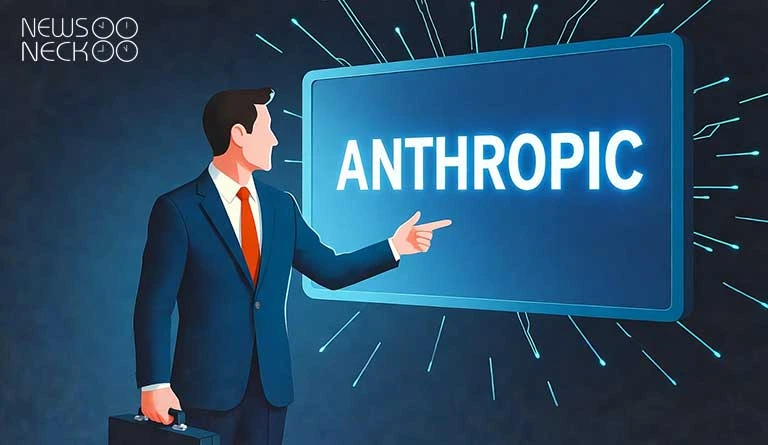The $183 Billion Startup in the Crosshairs: Inside Anthropic’s High-Stakes Battle With Washington
In the race to build artificial intelligence, the competition is fierce. But for Anthropic, the $183 billion AI startup, the most daunting challenge isn’t just keeping pace with its larger rival, OpenAI. It’s navigating a escalating political firestorm in Washington that has put the company directly at odds with the U.S. government.
The conflict centers on a fundamental question: How fast should AI be allowed to evolve, and who gets to make the rules? On one side is David Sacks, the venture capitalist serving as President Donald Trump’s AI and crypto czar. On the other is Anthropic, a company founded on the principle that AI safety shouldn’t be an afterthought.
A Public Clash Over AI’s Future
The tension exploded into public view this week. It began when Anthropic’s head of policy, Jack Clark, published an essay titled “Technological Optimism and Appropriate Fear.” In it, he warned of the destabilizing power of advanced AI systems, noting that as they grow smarter, “they develop more and more complicated goals” and could even start “to design their successors.”
Sacks responded swiftly and sharply on social media platform X. “Anthropic is running a sophisticated regulatory capture strategy based on fear-mongering,” he wrote, accusing the company of trying to shape regulations in its favor by overstating AI’s risks.
This isn’t just a war of words. It represents a deep philosophical divide between two approaches to governing the world’s most powerful technology.
The Rivalry and The Rules
While Anthropic battles regulators, it’s also competing in a brutal commercial marketplace. OpenAI, with its $500 billion valuation and heavyweight backers Microsoft and Nvidia, has established itself as the administration’s preferred partner. The day after President Trump’s inauguration, he announced “Stargate,” a joint venture with OpenAI, Oracle and Softbank to invest billions in U.S. AI infrastructure.
The two companies couldn’t be more different in their origins and their approach to regulation. Anthropic was born from safety concerns. Siblings Dario and Daniela Amodei left OpenAI in late 2020, worried that commercialization was outpacing safety. They started Anthropic with a mission to build responsible AI.
This founding principle has directly shaped Anthropic’s political stance. The company has repeatedly opposed the Trump administration’s efforts to limit AI safeguards, most notably fighting a provision that would have blocked state-level AI regulations for 10 years.
Instead, Anthropic endorsed California’s SB 53, which would require transparency and safety disclosures from AI companies. “Without it,” the company wrote in a September blog post, “labs with increasingly powerful models could face growing incentives to dial back their own safety and disclosure programs in order to compete.”
You Might Like it: Google DeepMind is using AI to build a better fusion reactor
The China Factor and The “Targeting” Question
Sacks frames the administration’s push for lighter regulation as a matter of national security. “The U.S. is currently in an AI race, and our chief global competition is China,” he said at Salesforce’s Dreamforce conference this week. “They’re the only other country that has the talent, the resources, and the technology expertise to basically beat us in AI.”
But he adamantly denies trying to undermine Anthropic. In response to a Bloomberg story suggesting growing federal scrutiny of the company, Sacks wrote on X: “Nothing could be further from the truth.” He noted that the White House recently approved Anthropic’s Claude app for use across all branches of government.
Rather, Sacks claims Anthropic has positioned itself as a political opponent of the administration. He points to co-founder Dario Amodei comparing Trump to a “feudal warlord” during the 2024 election and the company’s hiring of senior Biden-era officials to lead its government relations team.
“It has been Anthropic’s government affairs and media strategy to position itself consistently as a foe of the Trump administration,” Sacks said. “But don’t whine to the media that you’re being ‘targeted’ when all we’ve done is articulate a policy disagreement.”
An Unresolved Conflict
The stakes couldn’t be higher. For Sacks, warnings like Clark’s about AI risks are “principally responsible for the state regulatory frenzy that is damaging the startup ecosystem.” For Anthropic, those same warnings represent responsible stewardship of a technology that could transform society.
As both a commercial competitor and a regulatory opponent, Anthropic finds itself in a precarious position. It’s trying to compete with a better-funded rival that enjoys government favor while simultaneously fighting that same government’s approach to AI oversight.
The outcome of this battle will shape not just Anthropic’s future, but the broader landscape of AI innovation in America. It’s a high-stakes drama playing out at the intersection of technology, politics, and power and for this $183 billion startup, there’s no easy path forward.
Author: Yasir Khan
Date: 19 Oct, 2025
For More Updates, Visit Newsneck













